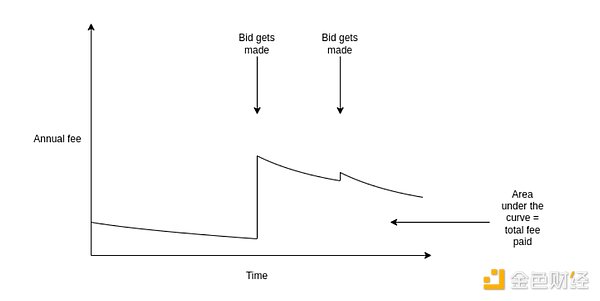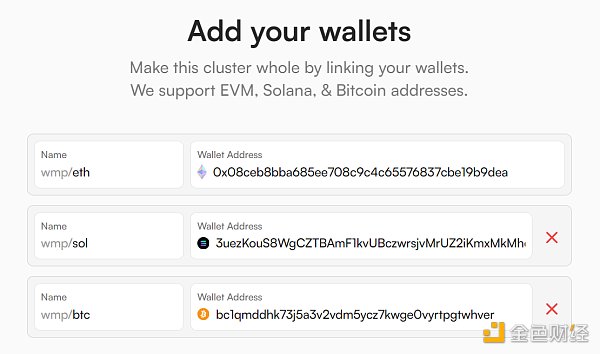Author: William M. Peaster, Bankless; Compiled by: Deng Tong, Golden Finance
Excited about the cross-chain future, but concerned about the inconsistency of determining which wallet belongs to your friend on each network Frustrated?
Clusters is a new cross-chain naming service developed by the Delegate and LayerZero teams, which allows users to bid and register wallet names on Ethereum and non-Ethereum chains simultaneously.
Its slogan is: “All chains, all wallets, one name.”

What is the difference from ENS?
Clusters are in the same general category as the Ethereum Naming Service (ENS), as both protocols provide human-readable blockchain domain names that support multiple chains.
The difference between the two projects at a fundamental level lies in their architecture.
For its part, ENS uses a custom multi-chain address resolution system within its protocol, enabling ENS names to record and point to addresses on different blockchains.
In contrast, Clusters is the first application built on the new V2 version of LayerZero, a blockchain platform designed to allow projects to move seamlessly and seamlessly across different blockchains. Interoperability protocols for secure operation.

How does Clusters combat squatting?
In order to curb malicious domain name squatting, Clusters adopts a periodic pricing mechanism called demand-based, which Vitalik Buterin has previously written about mechanism.
So whileENS relies on fixed-rate renewal fees, such as $5 per year for a five-character domain name, Clusters adjust renewal fees based on market demand.
This model allows anyone to bid on a domain name to increase its annual fee. If the bid remains unchanged for a long time, the renewal fee will become part of this floating valuation, encouraging the domain name The owner either accepts a high sale price or pays increased fees to mitigate malicious squatting.

The public beta version has been Launch
On February 1, 2024, Clusters began the public beta phase with the launch of its auction system.
During this open beta phase, participants can begin bidding on highly sought-after domain names. The highest bidder will be awarded the domain name they require, ensuring transparency. Clusters is also developing a refund system for unsuccessful bidders so that those who are unsuccessful can get their money back.
In addition, Clusters has created an accelerated multiplier system to accompany its auctions. In other words, owning a corresponding ENS domain name, having a relevant Twitter handle, and being active on social media can significantly improve your bidding and provide you with a competitive advantage for your target domain name.
After the public beta ends, Clusters plans to improve its auction mechanism and transition to a fully open first-come, first-served (FCFS) registration system. This transition is expected to occur within the next few months.
How to start using Clusters

Before you start using Clusters, you will need to set aside some Ethereum to bid on the domain name of your choice. Once you have your funds ready, you can proceed by following these steps:
Visit clusters.xyz and connect your wallet.
Click "Create Bid" at the top of the page and enter your target cluster name.
In the subsequent interface, enter your desired bidding amount. For reference, many people's bids so far are in the range of 0.02-0.06 ETH.
Click "Claim" and confirm the deposit transaction using your wallet.
Start customizing your Cluster by importing your profile picture from Twitter and adding additional wallets.
When you have finished customizing, press "Finish Setup" to complete the configuration process.

At this point you can go to the My Profile tab on the Clusters website to track your bids, edit your wallet, or copy your unique referral link to use on Share on social media to get acceleration multipliers.
If any of your bids end up being unsuccessful, stay tuned for the release of Clusters’ refund system in the coming weeks!
Future Vision
Clusters’ vision is secure and user-friendly cross-chain identity management. By combining auctions, demand-based pricing and acceleration multipliers, Clusters aim to bridge the gap between different chains in a simplified way. In the future, be sure to keep an eye on this project as it will provide support for other chains, such as networks in the Cosmos ecosystem.
 Kikyo
Kikyo






